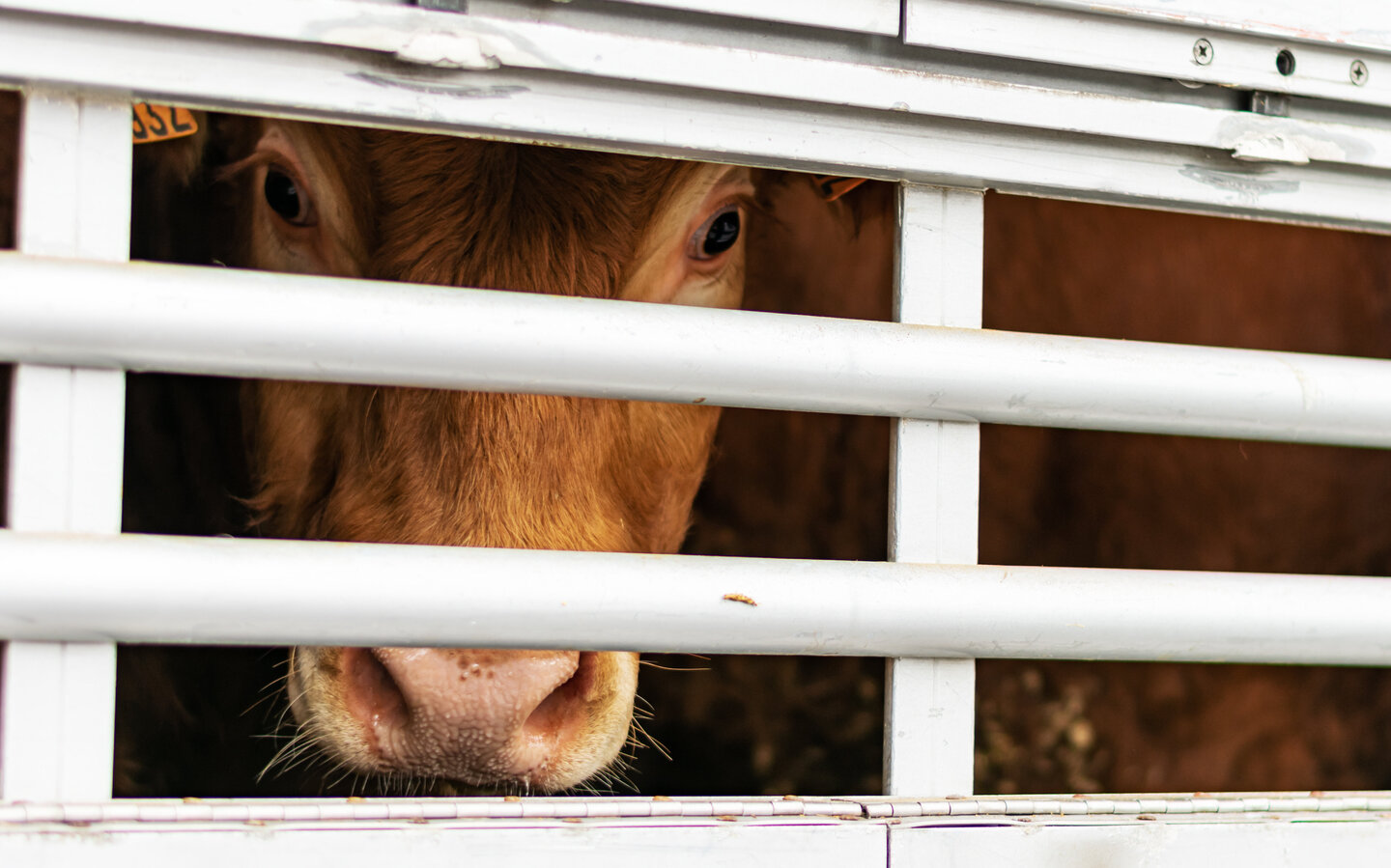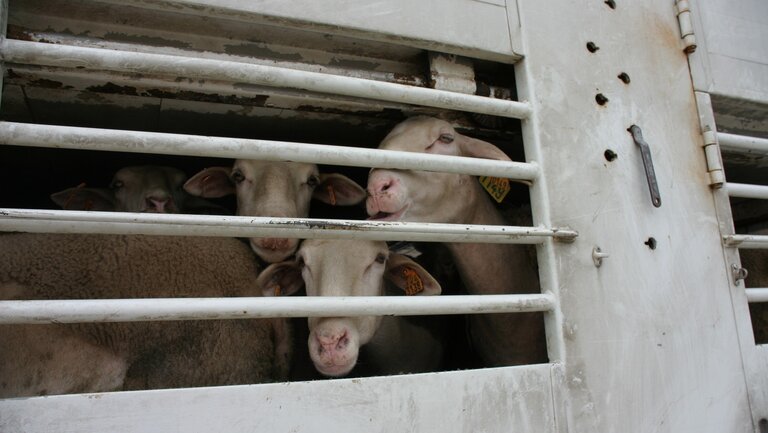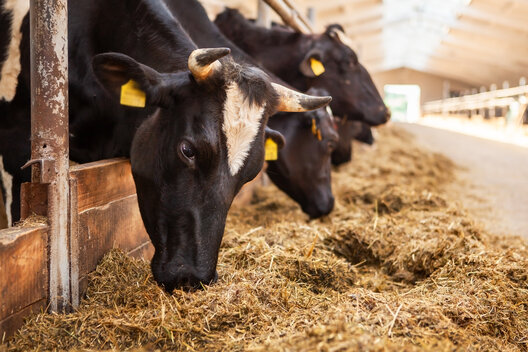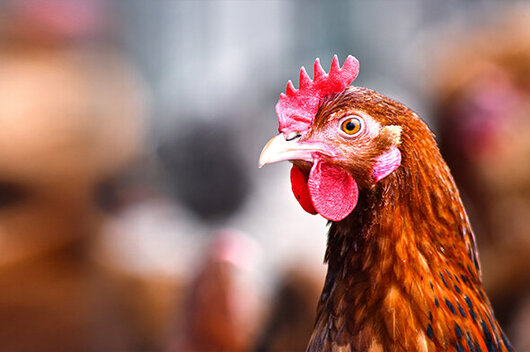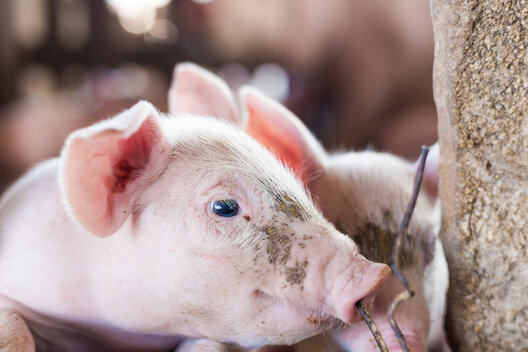Agonizing odysseyAnimal transportation: suffering without borders
Every day, millions of animals are transported over long distances for breeding, fattening or slaughter, usually over several hundred or thousand kilometers. Such animal transports are extremely stressful for pigs, cattle, sheep and other animals and absolutely must come to an end.
What sounds like a horror scenario is a bitter reality: animals are transported across Germany, Europe and to non-European countries in dirty trucks, without sufficient space, water and feed, and in extreme temperatures. The animals are exposed to the most adverse conditions in the vehicles. The animals are afraid and suffer from heat, hunger, thirst and injuries. Many animals are still very young when they are transported and are taken weeks or months after birth for further breeding, fattening or slaughter .
An infinite number of animal transports
In Germany alone, around 35 million pigs, around three million cattle and over 650 million chickens die every year for animal products such as meat, milk and eggs. These animals are transported to slaughterhouses, often several hundred kilometers away. Even within the EU, animal transportation can take several days. Long-distance transports to countries outside Europe are particularly agonizing for purely economic reasons: As male calves from dairy cows are slow to put on meat, they are sold to fattening farms in the Netherlands, Spain or Italy from the age of 14 days. From there, some of the animals are later transported to non-EU countries, so-called third countries such as Turkey or Lebanon, to be slaughtered there - often without stunning. Pigs destined for fattening are also transported from their rearing farm to the fattening farm and from there to the slaughterhouse. Around 350 million mammals and one billion poultry are traded within the European Union and in third countries every year.
Millions of mammals are traded annually within the European Union and in third countries.
days is how old male calves from dairy cows are when they are sold to fattening farms in the Netherlands, Spain or Italy.
Millions of pigs die every year in Germany alone for animal products.
Millions of chickens die in this country every year for meat and eggs.
Legal situation: Regulation is disastrous
Since the beginning of 2007, the Transport Regulation has been in force in all member states of the European Union - this is intended to ensure the protection of animals. Unfortunately, its provisions are far from sufficient to prevent animal suffering during transportation. There is not enough space, the loading densities are too high, the transportation time is too long and the temperature limits are too broad. According to the regulation, it is permissible to transport animals in trucks at temperatures of up to 35 degrees. Adult cattle may be transported for 29 hours before they leave the truck for the first time. They only have an area of just one and a half square meters at their disposal. This means that not all the animals can lie down at the same time. As long as they have strength, the cattle try to stand and balance out the movements of the vehicle - an extreme strain. Chickens are stacked in boxes and may be transported for twelve hours without food and water. According to the guidelines, pigs may be transported for 24 hours without a break. In addition, it is permissible to continue the transport and rest intervals indefinitely, so transporting animals for days and even weeks is not prohibited.
Violations are the order of the day
The situation for the animals worsens dramatically when the inadequate guidelines of the transportation regulations are also disregarded. Unfortunately, this happens on a daily basis: significantly more animals are loaded than permitted, they are not given enough or even any food and water, break times are not observed. Often the cattle, pigs and co. are also grossly mistreated. Responsibility for inspections lies with the veterinary authorities of the federal states, with the police providing support. In most cases, the abuses remain undetected as animal transports are hardly ever inspected. In particular, animal transports to third countries are poorly monitored. If the submitted route planning is plausible and the truck is approved, the transport must be authorized. After leaving the EU, the EU authorities no longer have any control options. This is fatal, as animal welfare plays no role in most destination countries.
This is what the German Animal Welfare Federation demands
The German Animal Welfare Federation has been fighting for an end to animal transportation for around 30 years. Together with our European umbrella organization Eurogroup for Animals, we are also constantly campaigning to minimize long-term transports and to tighten the legal requirements. We are therefore calling for
- a revision of the transport regulations, in particular regarding transport times, space and temperatures
- a ban on animal transports lasting longer than eight hours
- a ban on the export of live animals to countries outside the EU
- stricter controls on animal transportation
- frozen meat or genetic material should be transported instead of live animals
- decentralization of agriculture: rearing, keeping and slaughtering should take place as close together as possible to avoid animal transport

